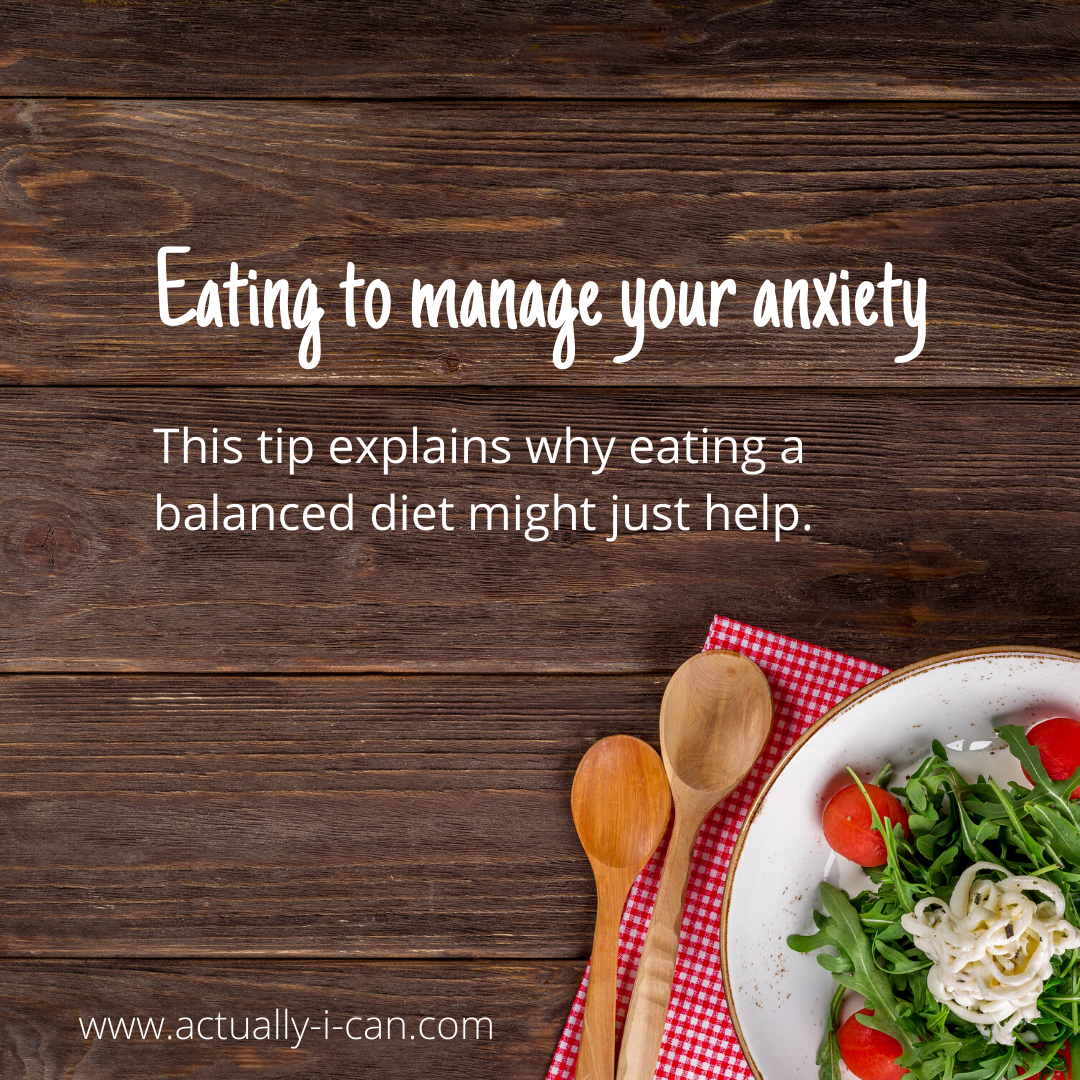Eating to manage your anxiety
I’m not talking about stress eating, but about choosing foods to help lessen your anxiety.
According to the Mayo Clinic, the following tips about what to eat (or avoid) can help you to reduce or better manage your anxiety. I’ve added some additional info to their basic tips:
Add some sort of protein at breakfast. That can be as simple as adding yogurt or protein powder to a smoothie. The idea is to stabilize your blood sugar as you start your day.
Incorporate complex carbohydrates into your diet. Carbs trigger the release of serotonin, which is a feel-good chemical. But simple carbs (sugar, baked goods made with white flour) process quickly and affect your blood sugar levels, which can cause mood swings. Complex carbs from whole grains trigger the serotonin without the wild sugar swings.
Drink plenty of water. Sure, you hear this tip all the time, but it’s because it’s so important. Your brain is something like 75% water, and even mild dehydration can start affecting its chemical functions and your other body systems. I’ve added a downloadable water tracker for you, in case you want to track your intake, because it’s that important.
Limit or eliminate alcohol. Sorry, not sorry. While alcohol can calm you down temporarily, it can also make you unstable or moody (my mom has alcohol issues, and I’ve seen this first-hand). Plus it messes with your sleep—while it makes you drowsy, it also messes with your blood sugar levels and wakes you up so you don’t get sustained sleep.
Limit or eliminate caffeine. If it makes you jittery, then cut back. Especially before bedtime, if you find yourself being kept awake or you feel your anxiety spiking after evening caffeine.
Pay attention to any food sensitivities you notice. Likely culprits of food that may trigger anxiety include alcohol and caffeine (duh), as well as fermented or cured foods (aged cheeses, cured meats). A known issue for some people is non-dairy creamer; the theory is that anxiety is triggered by the trans fats in them. More than one of my friends has noticed that their children become manic when eating Cheetos—it’s something to do with that orange powdered cheese (perhaps a certain food dye?). Just take notice if certain foods trigger your anxiety or make you irritable.
Try to maintain a balanced diet. I’m pretty sure the idea of a balanced diet exists because it is there to keep our systems in balance, so it stands to reason that maintaining a balanced diet keeps your system functioning properly. If you can’t remember the last time you ate a fruit or vegetable, it’s probably time to reconsider what you’re up to.
As I noted in the initial post that began this series, at least two of my cousins have been “forgetting” meals due to coronavirus stress. As I said there, that’s no bueno.
One has long-term anxiety issues and IBS; although she is currently working from home, she is sometimes skipping meals because she literally forgets she needs to eat, and it’s not helping her anxiety or IBS symptoms one bit. Another cousin works in a grocery store and is therefore considered an essential worker, so she has all the stresses you might imagine any essential worker does. She is somewhat relieved now that her state has mandated the wearing of face masks for everyone, so hopefully that will help to lessen her anxiety. Both of them have acknowledged that “forgetting” meals is not helping them, but is actually making them more moody and unstable, which allows their anxiety to ramp up.
Do yourself a favor, and learn from their example of what not to do. If you find yourself forgetting to eat regular meals, set alarms on your phone or on a clock to remind yourself that you need to eat. And try to take the pointers above into consideration so that you can give your system some proper, balanced nutrition to help it function appropriately.
If you didn’t already snag it, get your downloadable Water Tracker here.

